
Naseeruddin Shah
Born : 20th July, 1950, Hyderabad (AP) India
Wife : Ratna Pathak Shah (Cine Actor )
Children: Imaad Shah, Heeba Shah
Brothers: Zaheeruddin Shah,
Born : 20th July, 1950, Hyderabad (AP) India
Wife : Ratna Pathak Shah (Cine Actor )
Children: Imaad Shah, Heeba Shah
Brothers: Zaheeruddin Shah,
Lt. General Zameeruddin Shah (Deputy Army Chief of India)
Education:
Education:
1973 : B.A. from Aligarh Muslim University
National School of Drama New Delhi.
Awards:
1980: National Film Awards for Best Actor, Sparsh
1980: Filmfare Best Actor Award, Aakrosh
1981: Filmfare Best Actor Award, Chakra
1983: Filmfare Best Actor Award, Masoom
1985: National Film Awards for Best Actor, Paar
1984: The Volpi Cup (Award for Best Actor) at Venice Film Festival for Paar
1987: Padma Shri, India's fourth highest civilian award
2000: Sangeet Natak Akademi Award
2000: IIFA (International Indian Film Academy) Award -
National School of Drama New Delhi.
Awards:
1980: National Film Awards for Best Actor, Sparsh
1980: Filmfare Best Actor Award, Aakrosh
1981: Filmfare Best Actor Award, Chakra
1983: Filmfare Best Actor Award, Masoom
1985: National Film Awards for Best Actor, Paar
1984: The Volpi Cup (Award for Best Actor) at Venice Film Festival for Paar
1987: Padma Shri, India's fourth highest civilian award
2000: Sangeet Natak Akademi Award
2000: IIFA (International Indian Film Academy) Award -
Artistic Excellence for Performance in a Negative Role for Sarfarosh
2003: Padma Bhushan, India's third highest civilian award
2004: 7th International Film Festival of Mumbai - Award for contribution to Indian cinema
2006 Honorary Tribute Award : Indian Film Festival of Los Angeles (IFFLA)
2007: National Film Awards for Best Supporting Actor, Iqbal
Naseeruddin Shah was born in Hyderabad, Andhra Pardesh on 20th July 1950. At the age of 5 years he was sent to boarding school, St Joseph's School, in Nainital with his elder brother Zameeruddin Shah who was 7 years old. His eldest brother Zaheerudin Shah stayed with their parents. In fact Naseer’s sibling elder brother Zameer was staying with their aunt in Sardhana, near Meerut in western UP until Naseer was 2 years old. Naseer was failed in 9th grade so he departed from his brother Zameer and joined a different school. After completing his school, Naseer joined Aligarh Muslim University for his graduation in Arts and his sibling brother Zameer went to NDA (the National Defense Academy in Pune, Maharashtra) and later joined Indian Army in 1969. Naseer was very much interested in cultural activities and was an active member of AMU Drama Club. As we have a saying in Aligarh “Those who can face AMU crowd/audience, can face any crowd/audience in the world”. After a great success in AMU Drama Club, Naseer joined National School of Drama in Delhi and decided to make acting as his career.
2003: Padma Bhushan, India's third highest civilian award
2004: 7th International Film Festival of Mumbai - Award for contribution to Indian cinema
2006 Honorary Tribute Award : Indian Film Festival of Los Angeles (IFFLA)
2007: National Film Awards for Best Supporting Actor, Iqbal
Naseeruddin Shah was born in Hyderabad, Andhra Pardesh on 20th July 1950. At the age of 5 years he was sent to boarding school, St Joseph's School, in Nainital with his elder brother Zameeruddin Shah who was 7 years old. His eldest brother Zaheerudin Shah stayed with their parents. In fact Naseer’s sibling elder brother Zameer was staying with their aunt in Sardhana, near Meerut in western UP until Naseer was 2 years old. Naseer was failed in 9th grade so he departed from his brother Zameer and joined a different school. After completing his school, Naseer joined Aligarh Muslim University for his graduation in Arts and his sibling brother Zameer went to NDA (the National Defense Academy in Pune, Maharashtra) and later joined Indian Army in 1969. Naseer was very much interested in cultural activities and was an active member of AMU Drama Club. As we have a saying in Aligarh “Those who can face AMU crowd/audience, can face any crowd/audience in the world”. After a great success in AMU Drama Club, Naseer joined National School of Drama in Delhi and decided to make acting as his career.
Naseeruddin Shah made his acting debut in Shyam Benegal's 1975 film, Nishant. He established himself as a good actor and won the Indian government's National Film Award for Best Actor in 1979 for an effective portrayal of a blind man in the film Sparsh. This was also the time when several young directors were making movies that were different from those produced till then. This movement was termed the New wave, with actors such as Shah, Shabana Azmi, Smita Patil and Om Puri appearing together in offbeat Parallel Cinema art films like Bhumika (1977), Bhavni Bhavai (1980), Ardh Satya (1982) and Mirch Masala (1986). He also won three Filmfare awards during this period. His performance in the 1982 film Jaane Bhi Do Yaaro, a comedy, displayed his versatility but at the same time, also made it difficult to categorise him. In the interim, he was considered for the title role in Richard Attenborough's Gandhi, but finally the role went to Ben Kingsley. Shah was very disappointed that he could not bag the role.
Like many of the other actors of his genre, Naseeruddin Shah was first noticed by Shyam Benegal. He acted in Benegal's Nishant (1975), Manthan and Bhumika (1976). One of his most intense performances was given in Saeed Mirza's Albert Pinto Ko Gussa Kyon Aata Hai ("What makes Albert Pinto angry?", 1980). In the movie, he plays a garage mechanic from Goa who dreams of the expensive cars that he repairs but that are far beyond his reach. The film is set in a Catholic setting, primarily because Mirza did not have the courage to tackle Muslim issues. Naseeruddin Shah has also acted for other New Indian Cinema directors including Mrinal Sen (Khandan, 1983) and Sai Paranjpye (Sparsh, 1979). Besides these "serious" roles, he has a penchant for comedy.
His roles in Ketan Mehta's films and also in films like Mandi, Jaane Bhi Do Yaaron, and Mohan Joshi Hazir Ho! (1983), have endeared him to the Indian public. He has also not shied away from accepting roles in mainstream Hindi movies where he has played a variety of characters, though his slight frame has ensured that he is most often cast in a comic role. However, directors also utilize his great acting talent when a "character role" has to be played. What is surely most arresting about him is the sheer versatility of his talent. Naseeruddin Shah has also played and directed English and Hindi plays. This is not unimportant, since many of the most brilliant film actors came to the cinema after a long stint as theater actors. With his wife Ratna Pathak, Naseeruddin Shah continues to act regularly in plays, often at Shashi Kapoor's Prithvi Theatre.
Naseeruddin Shah worked in numerous movies, some of them are mentioned here;
Nishaant, Home Delivery, Paheli, The Great New Wonderful, Valley of Flowers, Asambhav, Main Hoon Na, Maqbool, The League of Extraordinary, Gentlemen, 3 Deewarein, Encounter, The Tragedy of Hamlet, Moksha, Kasam, Monsoon Wedding, Mujhe Meri Biwi Se Bachaao, Guru Mahaaguru, Gaja Gamini, Hey Ram, Tune Mera Dil Le Liya, Bhopal Express, Sarfarosh, Sar Utha Ke Jiyo, Bombay Boys, Such a Long Journey, China Gate, Dand Nayak, Dhoondte Reh Jaaoge, Daava, Lahu Ke Do Rang, Agni Chakra, Private Detective, Rajkumar, Himmat, Chaahat, Takkar, Naajayaz, Mr. Ahmed, Mohra, Ponthan Mada, Droh Kaal, Triyacharitra, Sir, Bedardi, Game, Hasti, Kabhi Haan Kabhi Naa, Lootere, Chamatkar, Vishwatma, Daku Aur Police, Electric Moon, Tehelka, Time Machine, Lakshmanrekha, Ek Ghar, Mane, Shikari, Chor Pe Mor, Police Public, Khoj, Tridev, Hero Hiralal, Rihaee, The Perfect Murder, Zulm Ko Jala Doonga, Libaas, Maalamaal, Mirza Ghalib, Pestonje, Ijaazat, Jalwa, Yeh Woh Manzil To Nahin, Karma, Genesis, Shart, Ek Pal, Musafir, Trikal, Aghaat, Ghulami, Khamosh, Mirch Masala, Khandhar, Lorie, Holi, Maan Maryaada, Mohan Joshi Hazir Ho, Paar, Party, Jaane Bhi Do Yaaro, Woh 7 Din, Ardh Satya, Haadsa, Katha, Mandi, Masoom, Dil... Akhir Dil Hai, Aadharshila, Bazaar, Sitam, Swami Dada, Tahalka, Tajurba, Chakra, Bezubaan, Sazaye Maut, Umrao Jaan, um Paanch, Sparsh, Aakrosh, Albert Pinto Ko Gussa Kyon Ata Hai, Bhavni Bhavai, Shaayad, Sunayana, Junoon, Bhumika: The Role, Manthan, Mixed Doubles, Iqbal, Omkara, Krrish, Valley of Flowers, Parzania & Ek Dhun Banaras Kee.
Naseeruddin Shah’s hard work paid him and he achieved numerous awards including Padam Bhushan from Government of India in 2003. He had played all kind of role from character to lead actor to charismatic Indian Hero to typical Bollywood villain. In 2006 one of the pioneers of the parallel cinema movement in the 1970s, Naseeruddin Shah was honored by the Indian Film Festival of Los Angeles (IFFLA), which was held from April 19 2006 in Los Angeles in United States of America. IFFLA presented 2006’s honorary tribute to Naseeruddin Shah by showcasing some of his best cinematic works over the last three decades. As part of its celebration of the works of Naseeruddin Shah, who has starred in over 120 films over the years, the IFFLA hosted the Los Angeles premiere of his latest film 'Parzania', a film which features him alongside actors Sarika and Perizaad Zorabian. On April 21, 2006 at IFFLA, he participated in a question and answer session with the audience after the screening. Best known to Western audiences for his roles in 'The League of Extraordinary Gentlemen', 'Monsoon Wedding', and 'The Perfect Murder'. He had also won the prestigious 'The Volpi Cup' at the Venice Film Festival for the film 'Paar' in 1984. In 2004, Mumbai International Film Festival bestowed him Lifetime Achievement Award for his contributions to Indian Cinema.
Naseeruddin Shah made his Directorial debut with Yun Hota to Kya Hota but did not made an impact as he is doing with his acting. Naseeruddin Shah is married to a fellow cine artist Ratna Pathak, daughter of Deena Pathak and sister of Supriya Pathak and lives in Bollywood capital Bombay (Mumbai). Imaad Shah, son of Naseeruddin Shah, who is playing the lead role in the upcoming film Dil Dosti etc is not really keen on pursuing a career in acting.
My brother Zameer : by Naseeruddin Shah
Naseeruddin Shah recounts growing up with our recently-appointed deputy army chief, Gen Zameeruddin Shah
(As told to Piali Banerjee of Mumbai Mirror)
It's unfair that every news report which talked about Zameeruddin Shah becoming deputy army chief, mentioned that he's my brother. But I guess life is unfair. My name is attached to his ('by the way') all the time. However, I don't think he minds. In fact, he once wrote an article in a fauji magazine where he mentioned six questions he is asked most often about me. The most popular among them is, 'Is Naseeruddin Shah your real brother?' “Zameer is two years elder to me. Since my mother was very unwell when he was born, he was sent to live in our village, Sardhana, near Meerut, and was brought up by an aunt of ours. He came to live with us only when he was around four years old, and I was two. It took me a while to get used to Zameer after he came from the village. He was very different from my eldest brother, Zaheer, and me. For instance, he couldn't speak English, and he had some different habits. He was also still very attached to our aunt in Sardhana “Then, when I was 5 and Zameer, 7, we both were sent to boarding school, St Joseph's School, in Nainital. In school, of course, he turned out to be a big hero, and I, an idiot. He was tall, good-looking, athletic, a boxing champ. And he even had a girlfriend in from St Mary's School. I envied him this like hell! Meanwhile, I failed in my ninth standard and left this school to join another.
“In school we didn't get together much because it wasn't cool for a senior to hang out with a junior. But Zaheer, Zameer and I bonded during the holidays. That's when we'd play cricket, learn to swim, and learn to ride a bicycle. Of course, Zameer managed to learn everything first. We had huge fights too; we kicked and punched and hit each other over usual things like who'd bat first.“Then Zameer went to NDA (the National Defense Academy in Pune) and changed completely as a person. He got rid of his wild, colorful ways and straightened out. He almost became austere in his ways, which he still is today. Today, he only has what he needs, there are no luxuries in his life. “I still remember the day when Zameer came home in his cadet's uniform. I was so inspired the moment I saw him get off the train. He was actually saluted by the policeman at the station who wouldn't even let me in! And although I knew that I wouldn't be a soldier, the idea actually appealed to me for a couple of days after that. (I had gone through NCC camps and I knew that getting up at 5 am on a winter morning to wear a starched uniform wasn't my scene.)“But the change in Zameer, changed, or rather straightened out, my life too. I was really inspired by the determination with which he quit his old habits and thinking. And I figured that if I focused in the same way on my acting, I could make a serious career of it too. His being a good soldier inspired me to be a good actor.
“In fact, I don't know whether I'd have been an actor if it hadn't been for my brothers. Were it not for the two of them, I'd have probably lost faith in myself. They were the only people in the world I could talk to about my acting aspirations. They were the only ones who listened to me, and didn't laugh at me. (Today, they do watch most of my films and, I believe, are proud of me.)“Soon after his graduation from NDA, Zameer went away to fight in the Longewala battle in the 1971 war. And that's a period in his life that's more or less blank for me. I was scared, of course, at that time, but I was more interested in knowing all the details about what was going on at the warfront. Meanwhile, my parents reacted in their own ways. My dad had a ball worrying, my mother retreated into prayer. Even now, Zameer never talks about those war days. If I ask him questions, he only answers in monosyllables, so now I've learned to leave him alone. They must be his private memories, which he'll talk about whenever he's ready.
“So, I guess, we're close in a way, but not so close in other ways. We don't meet often, but when we do, we pick up from where we left off. Since neither Zameer nor I are too fond of talking, we communicate in other ways, like playing tennis, or going riding together…“Zameer follows a typical military discipline. Even on holidays, he is almost always erect, and maintains his regular routine. Yeah, he can be rather funny when he wants to be but nowadays, as a general, he is almost always surrounded by people and does have an image to live up to.“Right now, of course, he has a good life. A big house, plenty of staff… In fact, I've got to see plenty of interesting places, where I wouldn't otherwise have gone, because of his postings. However, what's interesting is that Zameer is very aware of what a general's life is, after retirement. He has seen his seniors go through it, and is well-prepared. In that sense, he is a true realist.”* “I was really inspired by the determination with which he quit his old habits... His being a good soldier inspired me to be a good actor”

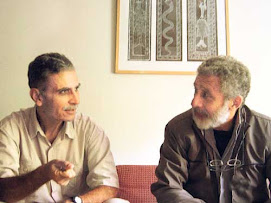
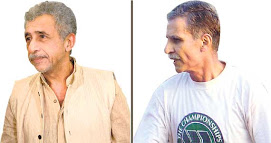



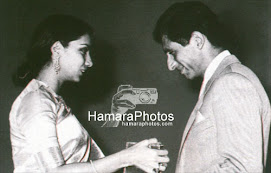
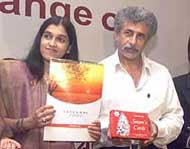










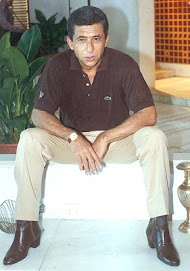


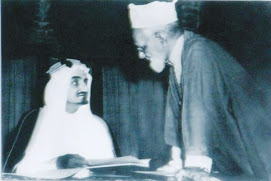

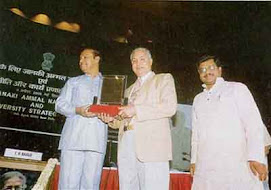
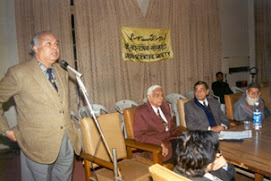
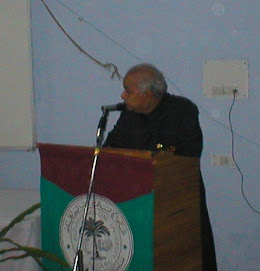














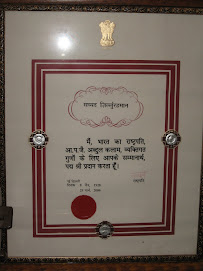
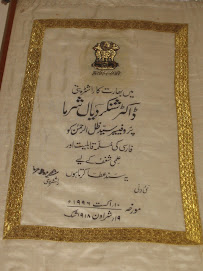



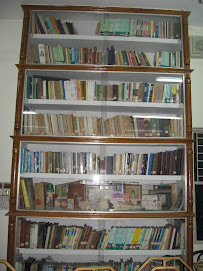
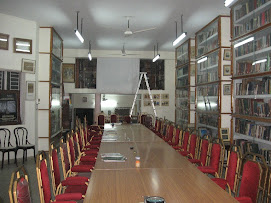
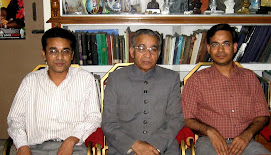
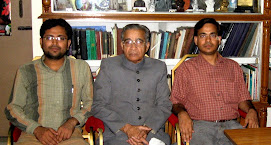




































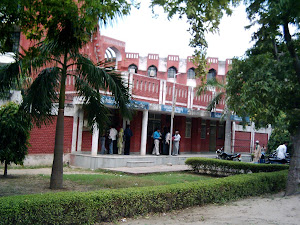
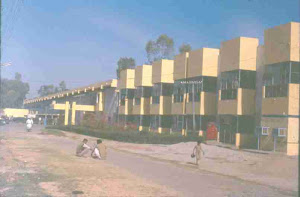


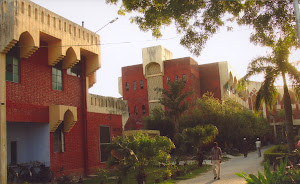
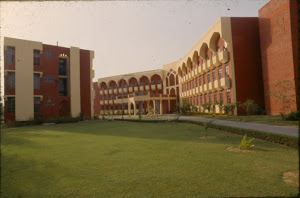





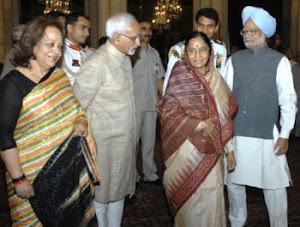
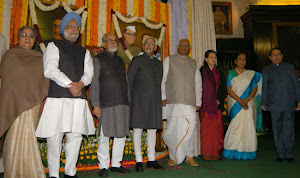
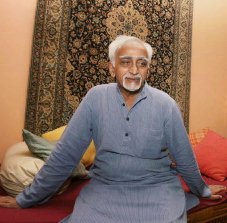
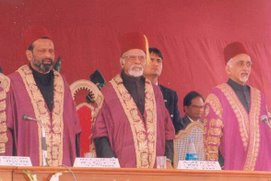

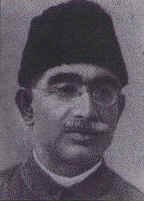




























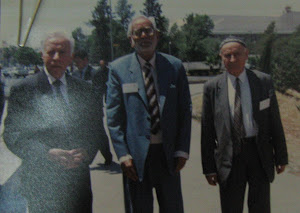







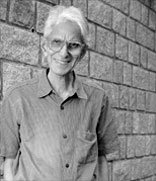






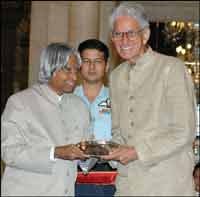



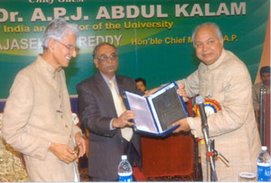

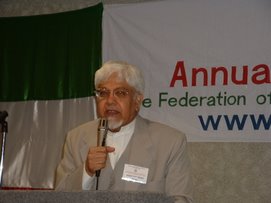
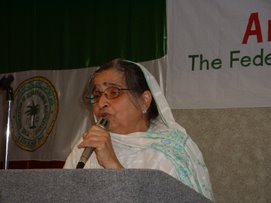
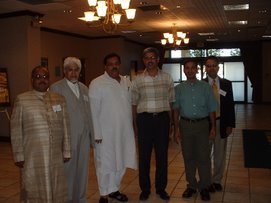
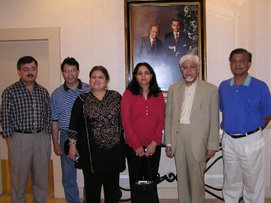




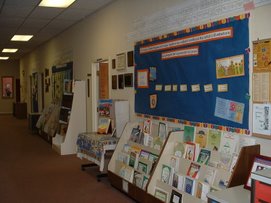



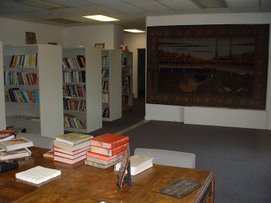

No comments:
Post a Comment